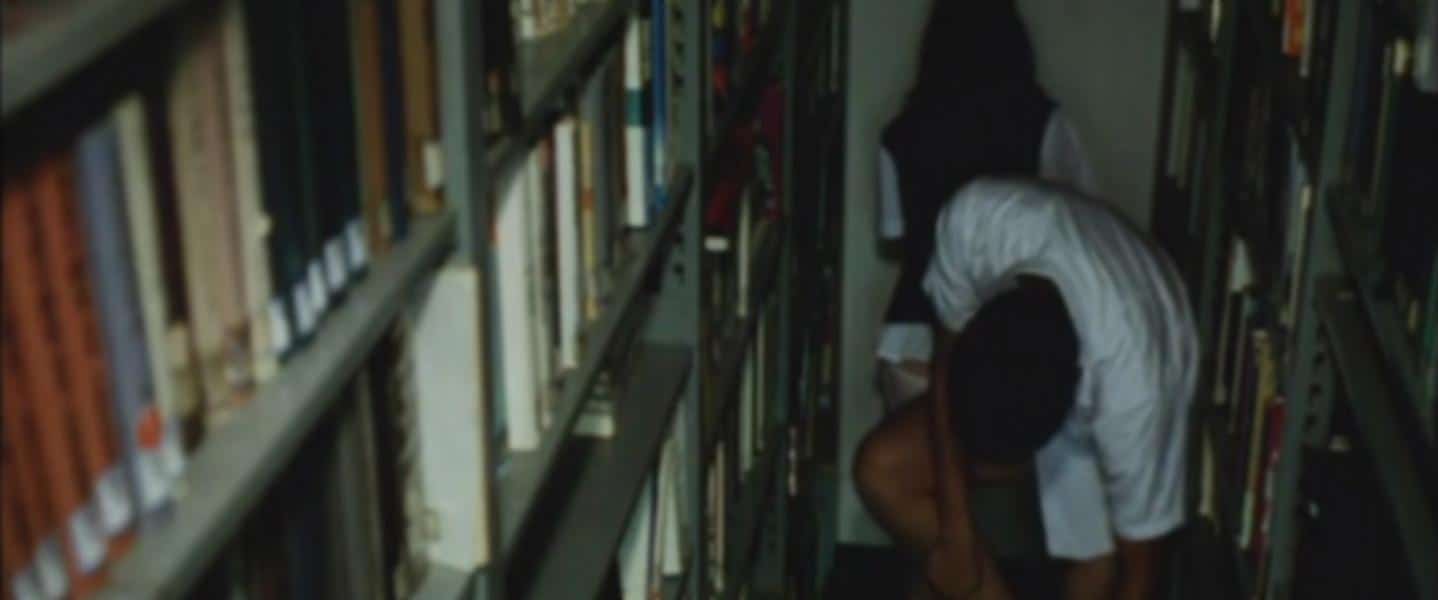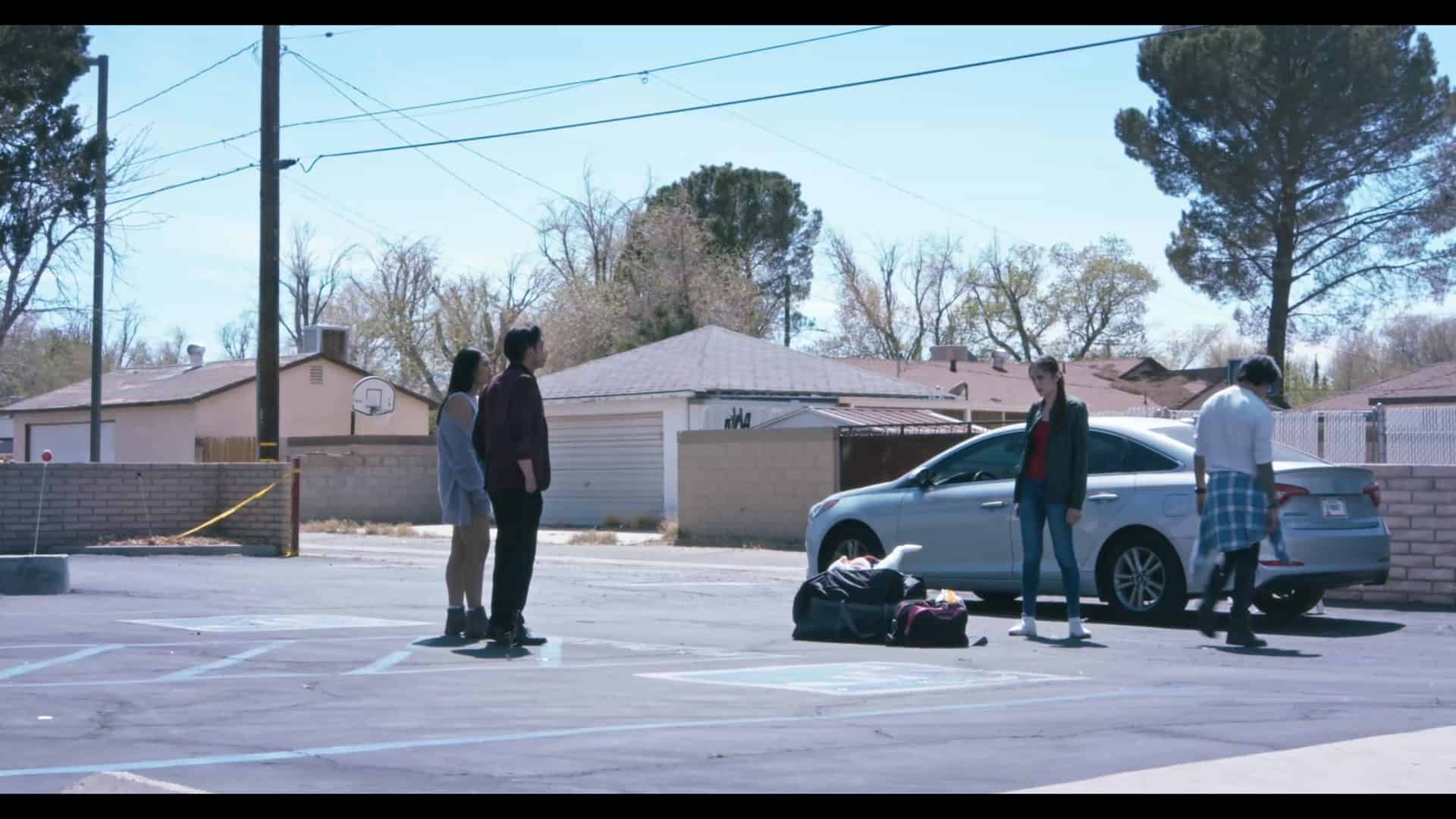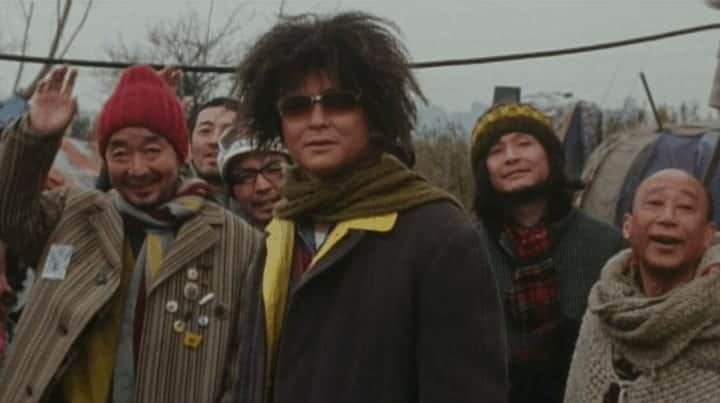Liang Ming returns to the film festival circuit at International Film Festival Rotterdam with his first feature, “Wisdom Tooth.” Liang Ming – previously a lead actor in Berlinale-screened “Shadow Days” (Dayong Zhao, 2014) – has put together a film that has won the hearts of many; “Wisdom Tooth” has previously won both the Jury Award and Best Director prizes at Pingyao International Film Festival, and now is now competing with its international premiere at the Bright Future Competition at IFFR.
“Wisdom Tooth” screened at the International Film Festival Rotterdam

And these awards were rightfully won, too: for a first feature, the film is an intense watch. “Wisdom Tooth” takes place in the 90s northern China in the dead of winter. Record-loving Guxi (Lyu Xingchen) and her older brother (Wu Xiaoliang) are all each other has. They are each other's sibling; they also are like each others' parent; they are also like each others' spouse. Their peaceful family home changes, however, when her brother runs into Qingchang (Wang Jiajia), a free-spirited girl who teaches piano lessons to children. Incidentally, Qingchang is also the daughter of the local fishery head — a fishery which has supposedly been complicit in a local oil spill that has poisoned the local fish supply. Things get complicated when Guxi's cassette-recording habit picks up confidential conversations that not even Qingchang was supposed to hear. Internal jealousy wrestles with the urge for revenge, as Guxi reckons with her brother's newfound interest in a girl other than herself. This coming-of-age film takes the Madonna-whore complex on a whole new level, as it witnesses a world-changing reckoning with sexual maturity — and all of the growing pains that come with it.
Liang Ming's choice to depict the leveled nuances of a girl's psyche is on one hand bold, and perhaps on another hand, simply flat. Is Guxi losing her brother? Her father? Her Freudian, subconscious lover? While the film seamlessly sets up the bubble of Guxi's world, the whole Guxi-Qingchang tension can almost be interpreted as base penis envy. The classic love triangle – only from the perspective of the wronged, almost incestuous lover – is still tinted with male fantasy.

Only the elegant color correction barely saves the day. With still cameras flooded with warm lights to contrast the harsh snows of each winter evening, Guxi's intense love for her brother nuances with each varying shade of intimacy. Her slow-burning ache of loss manifests in the carefully calibrated color schemes conveying the common feeling of betrayal. The tight, medium-shot compositions and silent camera make the viewer acutely aware of their own intrusive presence in the Guxi's emotional rollercoaster. As each character tries to suppress their own secrets — Guxi, her jealousy; Qingchang, her father's complicity; and Guxi's brother, his own struggle to choose between the two — the surveying camera invites only so much second-hand sympathy. Liang Ming masterful direction of both his camera and actors alike channel reach the perfect medium of evoked emotion and judgment.
However, not even DP He Shan's camerawork can save the script in its entirety. As the once-linear narrative devolves into more genre tropes and fantastical paranoia-driven illusions, the film loses its raw emotion for the sake of forced mysticism. It is almost as if Liang Ming could not figure out a way to bring the film to closure, other than to leave everything for the viewer's discretion. The sudden turn from naturally-lit cinematography to vivid fever dreams rob the movie of its profound internal struggle. But perhaps that's just part of the film's aesthetic: from the beginning to end, Guxi is, after all, burdened by the paranoia of the observant Qingchang, the film camera, and even her own cassette tape.

All in all, the movie is a delight to watch. Though the film hones in on a very specific situation, the feelings of trust, betrayal, and growth in “Wisdom Tooth” are entirely universal. Save for the somewhat questionable storyline and the sudden loose ends, Liang Ming has proven himself a promising director. He understands the relationship between actor and camera with a level of affinity impressive for first-timer. I look forward to seeing what he films next.
“Wisdom Tooth” is distributed by Parallax Films.















